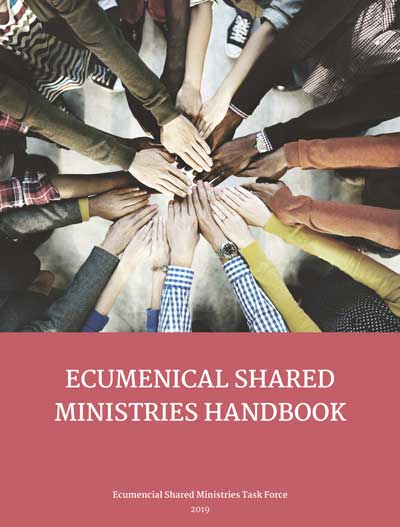Ecumenical Shared Ministries Handbook
First developed collaboratively in 2009 and updated in 2019, the Ecumenical Shared Ministries Handbook supports Anglican, Lutheran, Presbyterian and United Church communities exploring shared ministry at the congregational level. These ministries arise where local circumstances call churches to work together, offering a practical way to strengthen witness, steward resources and serve their communities in partnership.
The handbook outlines key models of ecumenical shared ministry in Canada and provides guidance on governance, agreements, worship life, property considerations and the responsibilities of each partner denomination. It also includes real-life examples, sample covenants and practical questions to help local leaders discern whether a shared ministry is the right fit for their context.
Suggested uses
- Discernment within parishes or congregations considering an ecumenical shared ministry arrangement
- Orientation for clergy, wardens, councils and committees in existing shared ministries
- Support for diocesan and synodical leaders guiding communities through restructuring or local mission planning
Key themes
- Ecumenical collaboration in worship, mission and congregational life
- Governance models and shared leadership across denominations
- Practical frameworks for agreements, property and finance
- Local mission, rural ministry and community-based partnerships
Best suited for: parishes and congregations exploring ecumenical partnership, diocesan and synodical leaders involved in local ministry planning, clergy and lay leaders serving in shared ministry contexts and anyone interested in models of ecumenical collaboration in Canada.
